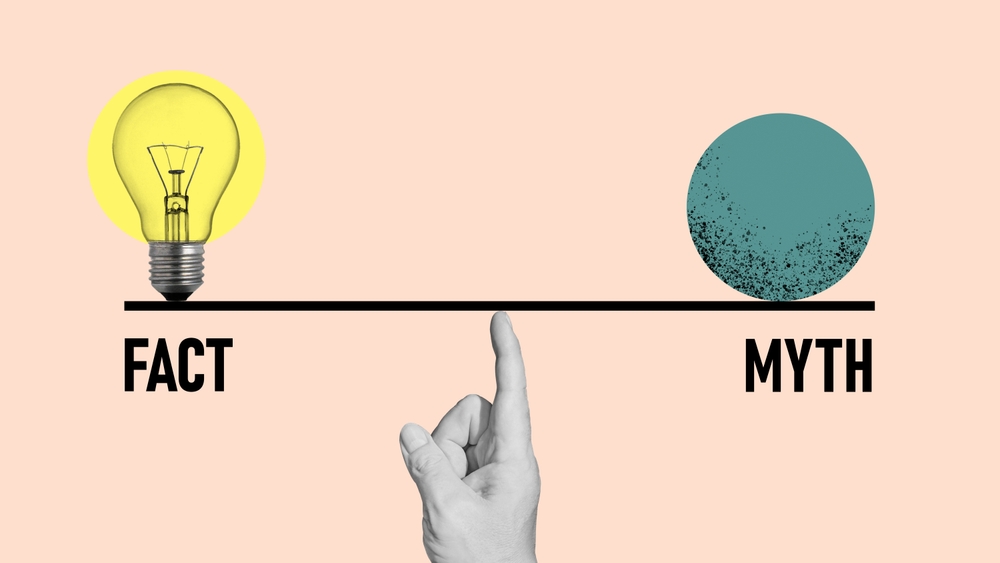Healthcare Myths Unveiled: Navigating the Maze of Misinformation for Informed Wellness

Healthcare remains ripe with myths and misinformation that lead patients toward questionable decisions, treatments, and products. In the internet age, medical fallacies spread faster than ever across platforms and private groups fuelling dangerous behaviors.
In this guide, we debunk the most pervasive healthcare deceptions circulating through unregulated channels and social pipelines. You’ll gain clarity on common medical myths around screening guidelines, disease contagions, vaccine side effects, alternative wellness claims, and more. Equipped with truth, patients avoid needless risks and harms promoted by inaccurate health content.
Disease & Contagion Myths
Human history shows infectious diseases are often accompanied by superstition and stigma around causes and spreading fears. Let’s explore prevalent overstated myths circulating through social channels about contagions.
Contracting Cancer
A worrying 49% of surveyed American adults believe "everything causes cancer" according to the American Institute for Cancer Research. This leads to fatalism around risk prevention and screenings. In reality, fewer than 5–10% of cancers occur due to inherited genes.
Chronic lifestyle factors like smoking, inactivity, and poor diets along with environmental factors most significantly impact cancer development. And not all forms behave similarly. Breast cancer differs from leukemia for example. Different causal factors, treatments, and prognoses apply by type. Understanding specific cancer risks empowers prevention based on patients’ unique profiles.
Contagion Causes
When illness outbreaks occur, misinformation compounds confusion and biases over facts. For example, since its outbreak, at least 12 xenophobic hoaxes blaming Chinese people for spreading COVID circulated widely according to fact-checkers. Racial stereotyping dangerously overlooks science around any disease origins.
Ebola similarly carries unfair associations with African culture rather than an incidental zoonotic jump. Stigma and rumors overwhelm public emergencies spreading faster than pathogens themselves. Relying on verified public health guidance always proves safest when confronting headlines around outbreak causes, protections, and responses.
Vaccine Fiction & Effects
Vaccine opposition moved from fringe views to worrying mainstream embrace recently across various demographics. Unfounded safety concerns and effects myths sway decision-making even as contradicting evidence abounds.
Autism Links
Chief among vaccine fiction involves links to childhood autistic spectrum disorders. However, since initial speculation around immunization triggering developmental conditions, over 14 exhaustive studies across 1.8 million children found no statistical increase in autism diagnoses for vaccinated children.
In contrast, countries with the lowest vaccine compliance like Ukraine and Mongolia show the highest autism rates. Ongoing settling of this issue reflects the strength of scientific consensus debunking vague correlations that compromise community immunity.
Side Effects & Safety
Next many express healthcare freedom objections about government immunization endorsements along with the ethics of mandatory programs. However, nations like Australia achieved vaccine coverage over 95% via such initiatives across decades while maintaining only a third of Europe's whooping cough cases and lower overall infant mortality statistics.
Public health policies indeed impose societal responsibility for collective well-being similar to other public safety laws. Beyond ethics, research shows general vaccine side effects prove mild like injection site soreness, low-grade fevers, or fatigue that passes quickly. Continued widespread immunization reliance keeps future generations safer as new treatments emerge.
Dubious Health Products
Questionable supplements and therapies get promoted widely for well-being despite lacking scientific validity and appropriate testing. Misleading marketing fuels users of the following unnecessary or potentially harmful health products.
Vitamin Infusion Services
Recent years saw a surge in intravenous vitamin drips, oxygen therapy, and chelation regimens at storefronts like Reviv clinics. Proponents claim direct nutrient injections correct assumed deficiencies, purge toxins, and amplify energy.
However, the review found none of these intravenous health services offer proven benefits better than eating balanced diets for the typical patient. Furthermore, risks like infection, phlebitis, and clots may accompany IV nutrient delivery. Lacking evidence of usefulness, these services prove skippable for most.
Detox Diets & Cleanses
Similarly, a quarter of surveyed adults believe the body needs special fasts or cleanses to purge accumulated toxins according to YouGov polling. In reality, no clinical proof establishes unique detoxification diets better than eating regular balanced nutrition, staying hydrated, and living actively.
Unless addressing specific heavy metal exposures or preparing for medical procedures, rushing elimination offers no benefits while potentially stressing organs through calorie/fluid restrictions. Don't get fooled by dramatic toxins elimination claims!
Supplements & Homeopathy
The global nutritional supplement market topped $140 billion in 2021, pushed heavily by internet personalities and multilevel marketing companies. However, reviews show just 49% of tested supplements contained DNA-verified active ingredients claimed on labels.
Worse, substituted ingredients often get listed vaguely like "root powders". Relying too heavily on unregulated capsules risks side effects. Seek professional medical opinions before substituting usual medications with nutritional supplements or homeopathy lacking evidence.
Closing Thoughts
In summary, health myths and misinformation propagate more rapidly online than ever before thanks to social sharing and specialized groups rallying fringe views. Be aware viral health content often intentionally provokes emotions over informing accurately. When confronting suspect claims around contagion concerns, vaccine questions, or alternative medicine, consult doctors or verified public datasets first.
Empower friends and family by sharing credible resources. Correct misinformation where possible, limiting reactionary responses. And contact representatives expressing the need for consumer protections and screenings governing health products marketed dubiously outside medical oversight. Through collective responsibility, facts prevail over fiction even in eras allowing misinformation to spread freely. The truth still supports health and healing.

